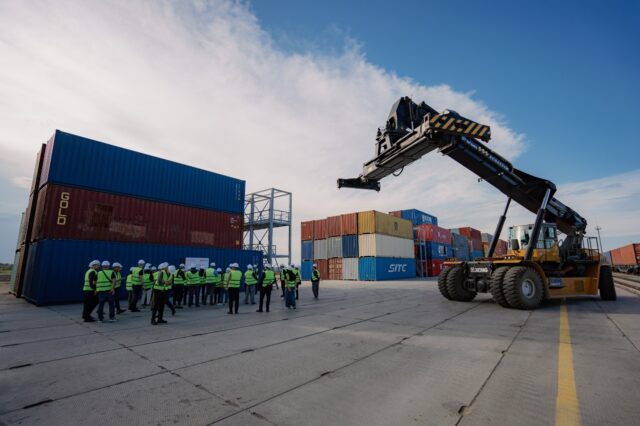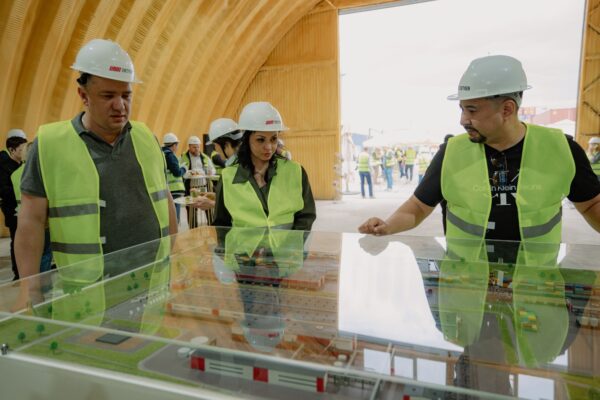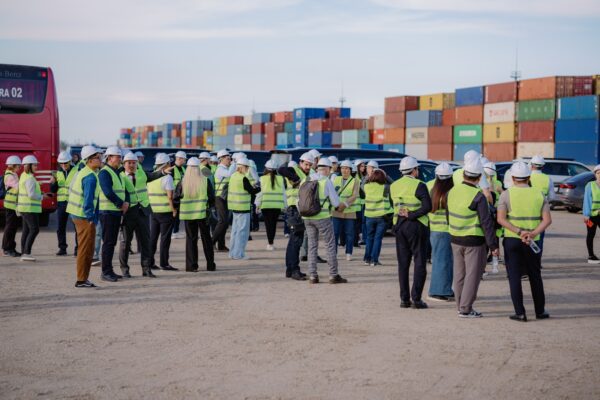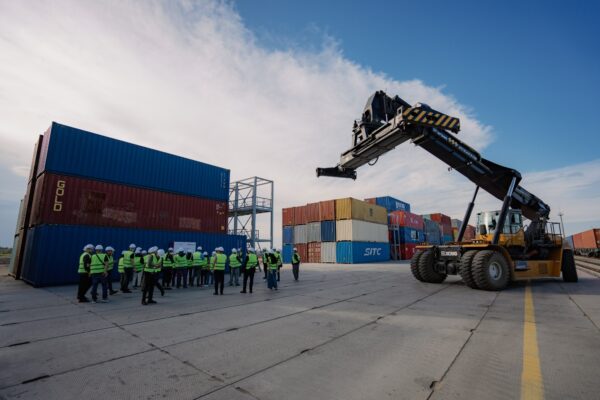The International Container Forum | ESE ASIA – 2024

The International Container Forum “ESE ASIA – 2024” took place on April 24-26 in Almaty, Kazakhstan, in the ballroom of the 5-star RIXOS Almaty Hotel, organized by the ESE, in partnership with the Chartered Institute of Logistics and Transport (CILT) Central Asia.
The event was attended by over 300 delegates from various countries, including Russia, Kazakhstan, China, Uzbekistan, Kyrgyzstan, Tajikistan, and others. The business programme focused on the formation and expansion of Trans-Asian transport corridors, current directions in the development of container transportation in the post-Soviet space, and the prospects for transportation integration between Asian countries and Russia, spanning three days.

On the first day of the forum, there was an excursion to the transport and logistics center “Zhetygen.” It is a modern and technologically advanced container terminal operated by Eastcomtrans LLP located 30 km from Almaty.
During the excursion, participants were briefed on the wide range of opportunities for export, import, and transit shipments based on the TLC, the history of the terminal’s establishment, and its future development plans.
The conference began with a panel session on “Global Containerization,” moderated by Erkhat Iskaliyev, Chairman of the Subcommittee on Transport Logistics and Transportation of the National Chamber of Entrepreneurs “Atameken” and member of the Presidium of the Transport Workers Union of Kazakhstan “Kazlogistics”. Erkhat remarked,
Today, it is important for all of us, CIS countries, to move in a coordinated manner. The trend must be adhered to so that all countries, all players, benefit from it. My favorite expression: there is no competition between countries, types of routes, types of transport. There is only competition between logistic products. I think each of the players is trying to create these products, but they cannot be created without some collaboration.”

Speakers also discussed in detail the issues of infrastructure deficit and tariff formation. In particular, Timur Karabayev noted that Kazakhstan continues to lack logistical assets. Many transportation companies today are making a serious investment in logistics assets: terminals, rolling stock.
“I think that over the past five to seven years, a lot of terminals have been built in Kazakhstan. However, logistical assets continue to be insufficient. Sometimes we observe a deficit in rolling stock, equipment. Unfortunately, there is a huge deficit in warehouse capacities in major regions of the country.”
Chairman of the PTC Holding Board of Directors, Timur Karabayev, affirmed the opinion that the global container shipping market is undergoing changes and is increasingly shifting towards the regional sphere.
“It is no secret to anyone that we are facing serious global challenges. The trends in today’s geopolitics and the economic development of many countries have slightly changed. The routes that used to operate for decades are either ceasing to operate or experiencing significant disruptions. We observe a decrease in the global trend of cooperation in the world economy. The world has begun to divide into ‘yours’ and ‘ours,’ into friendly and unfriendly countries. And this has had a significant impact directly on logistics. In our understanding, it is necessary to develop trade relations in any case,” he said, noting that “global containerization, especially in Kazakhstan, has not even reached halfway.”

Vyacheslav Saraev, General Director of RZD Business Aktiv, then continued the topic.
“The level of containerization, probably both in Russia and Kazakhstan, is quite low. And here, there is definitely something serious for all of us to work on together. We are, let’s say, at the very beginning of the path, despite the fact that containerization and container transportation are the fastest-growing segment of rail transportation. We have a lot of plans, both us and our colleagues and partners in the framework of containerization, so I urge everyone to actively invest in this direction.”
Next to speak was Alexander Kakhidze, General Director of LOGOPER LLC. He expressed the opinion that despite external pressure, Russian business actively interacts with partners from other countries, thanks to consensus and compromises.
“Container transportation is the most dynamically developing market. And to this day, despite any difficulties we may have with all types of transportation, containers remain a driver and continue to grow. We find consensus where we can, and where we cannot, we try to find compromises.”
Overall, the Forum served as a platform not only for discussing the urging issues in global supply chain but for establishing new business ties.
To contact CILT Central Asia, use the contact form here or the details below:
Website | www.cilt.kz
Email | Info@cilt.kz